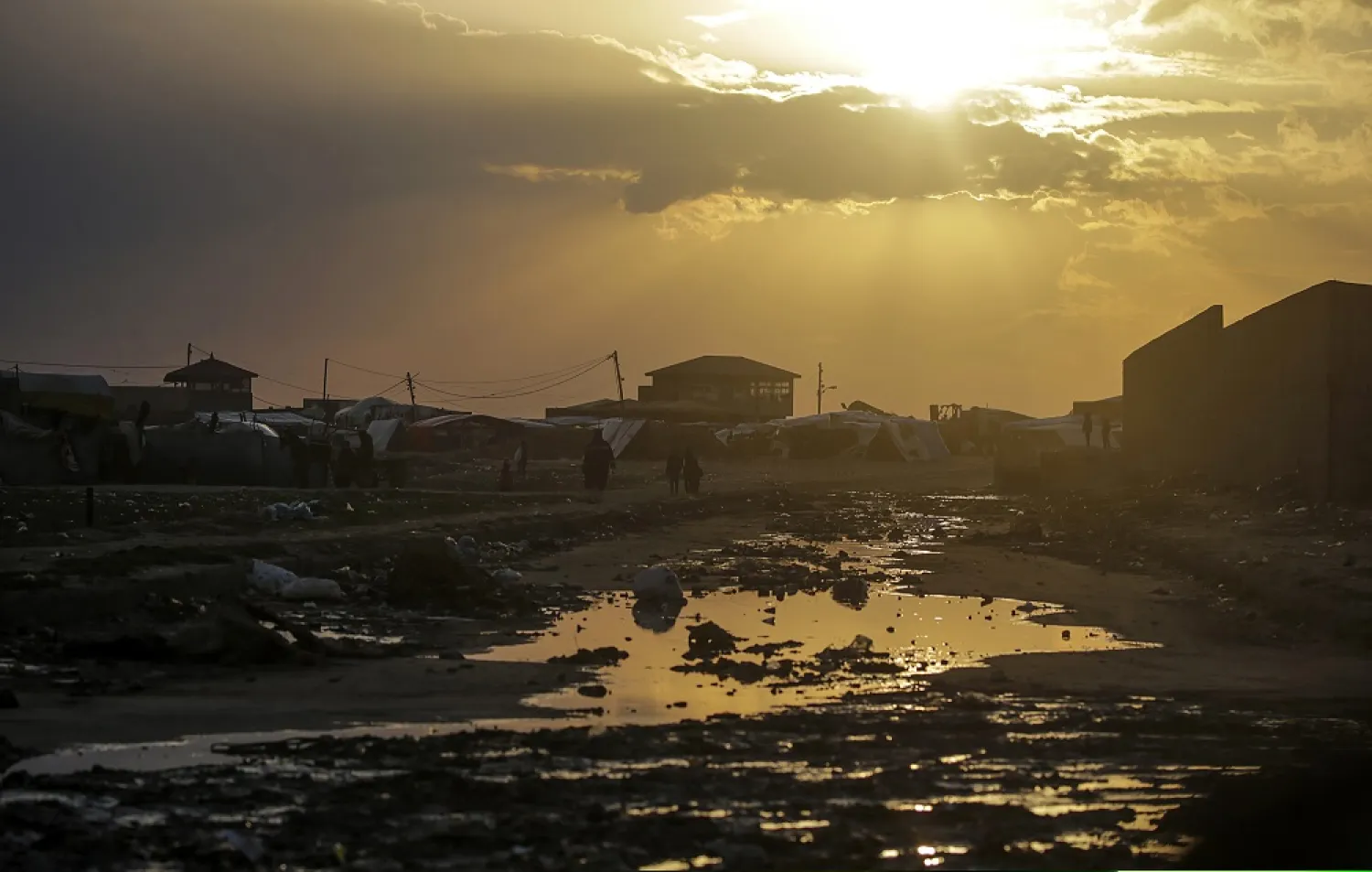Israeli forces carried out air strikes in Gaza on Wednesday as the militant Palestinian group Hamas studied a new proposal for a ceasefire and the release of hostages held in the enclave.
Witnesses said Israel had stepped up air strikes on Gaza City, in the north, and bombarded parts of Khan Younis, in the south, despite what appeared to be the most serious peace initiative for months in the Israel-Hamas war.
World powers hope to prevent a wider conflict, but tensions in the Middle East remained high after Yemen's Iran-aligned Houthi militias said they would keep attacking US and British warships in the Red Sea in solidarity with Palestinians.
Relations between Tehran and Washington are also tense after the deaths of three US soldiers in a drone strike near the Syrian-Jordanian border that US officials blame on Iran-backed militants. Washington has not yet outlined its response, but Iran's Revolutionary Guards said on Wednesday they would respond to any US threat.
Israeli Prime Minister Benjamin Netanyahu, who has vowed to destroy Hamas and to achieve "total victory" in Gaza, said a "real effort" was being made to secure the hostages' release. Israel says some 136 hostages are still being held in Gaza.
"It's too early to say how it will take place, but efforts are being made in these days, in these moments, these very hours," he said on Wednesday at a meeting with families of the hostages, according to a statement released by his office.
Gaza health authorities said 26,900 Palestinians had been killed - including 150 over the past 24 hours - in the war that was triggered after Hamas fighters stormed from Gaza into Israeli towns on Oct. 7, killing 1,200 and taking 253 hostages.
Israel's military said its forces had killed at least 25 Palestinian militants in Gaza in the past 24 hours, and that three Israeli soldiers had been killed - taking to 224 the number of troops killed during Israel's ground offensive.
Smoke rose above Gaza City after the latest air strikes, some of which targeted the headquarters of the Hamas-run interior ministry, Hamas-run media and residents said.
The Al-Nuseirat refugee camp in central Gaza also came under fire and tanks pounded areas of Khan Younis around Nasser Hospital, the largest still functioning in the south, witnesses said.
Israel's military said soldiers from its intelligence gathering unit were operating on Wednesday "in the heart of Khan Younis". Since the start of the ground invasion, it added in a statement, the unit had located more than 100 tunnel shafts and destroyed some 200 pieces of "enemy infrastructure" in Gaza.
DETERIORATING HEALTH SYSTEM
As the health system deteriorates, Palestinian medics say they have formed field medical points to help reach front lines, as treating the wounded in Khan Younis has become increasingly difficult amid street battles and artillery strikes.
"There's a lot of injuries among the displaced who were in the industrial quarter and some schools," said Nassim Hassan, the head of the Emergency Unit at Nasser Hospital, adding that "many of the injured left loaded on carts, tuk-tuks, cars or even on foot."
Much of the densely populated Gaza Strip has been devastated by almost four months of Israeli bombardment, and most of its 2.3 million residents have been uprooted by fighting that international aid agencies say has caused a humanitarian crisis.
Health officials in Gaza say the situation has been complicated by Israeli allegations that some staff from the UN refugee agency for Palestinians (UNRWA) were involved in the Oct. 7 attack on Israel, prompting some countries, including the United States, to pause funding to the agency.
UN Secretary-General Antonio Guterres on Wednesday described UNRWA as "the backbone of all humanitarian response in Gaza" and appealed to all countries to "guarantee the continuity of UNRWA's life-saving work".
THREE-STAGE TRUCE
A senior Hamas official told Reuters the Gaza ceasefire proposal involved a three-stage truce, during which Hamas would release the remaining civilians among hostages captured on Oct. 7, then soldiers, and finally the bodies of dead hostages.
The proposal followed talks in Paris involving intelligence chiefs from Israel, the US and Egypt, with the prime minister of Qatar.
Palestinians welcomed the possibility of a ceasefire but said fighting must end permanently.
"Any ceasefire that doesn't end the war and return us to our homes in Gaza City and the north is not worth it," Ahmed, who fled his home in Gaza City for Rafah in the south, said by telephone. "We are exhausted."
The conflict has sparked concerns of regional escalation.
The US and Britain have carried out strikes on Houthi targets in Yemen over the group's attacks on Red Sea shipping, but the Houthis' military spokesperson said on Wednesday the group would continue what it called acts of self-defense.
US Secretary of State Antony Blinken will make his fifth visit to the region since Oct. 7 in the coming days, a US official said on Wednesday.









